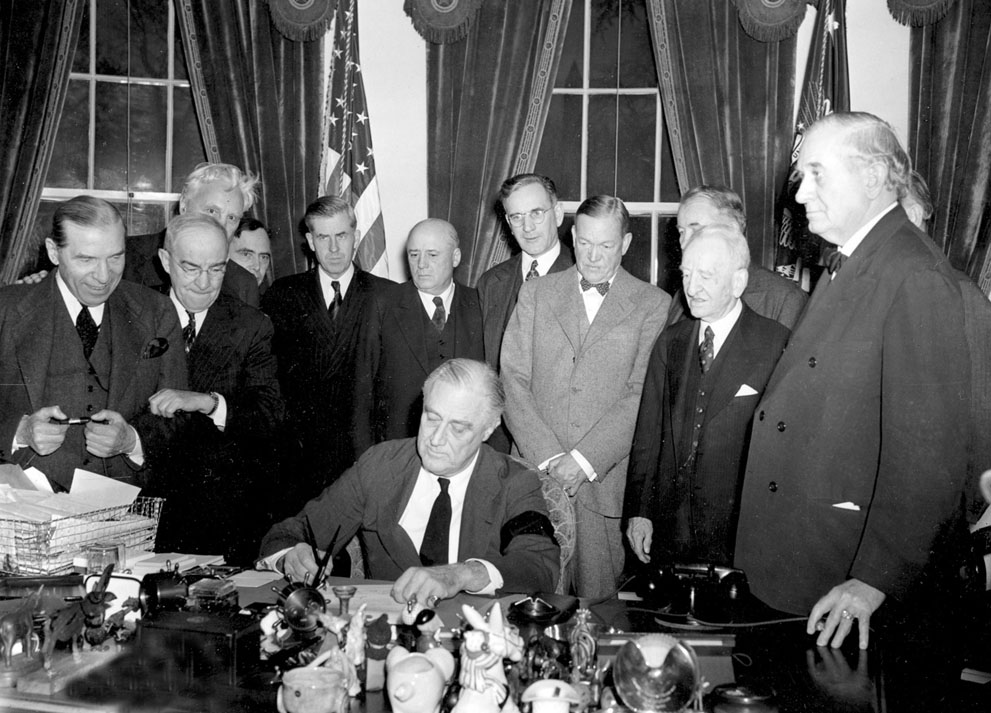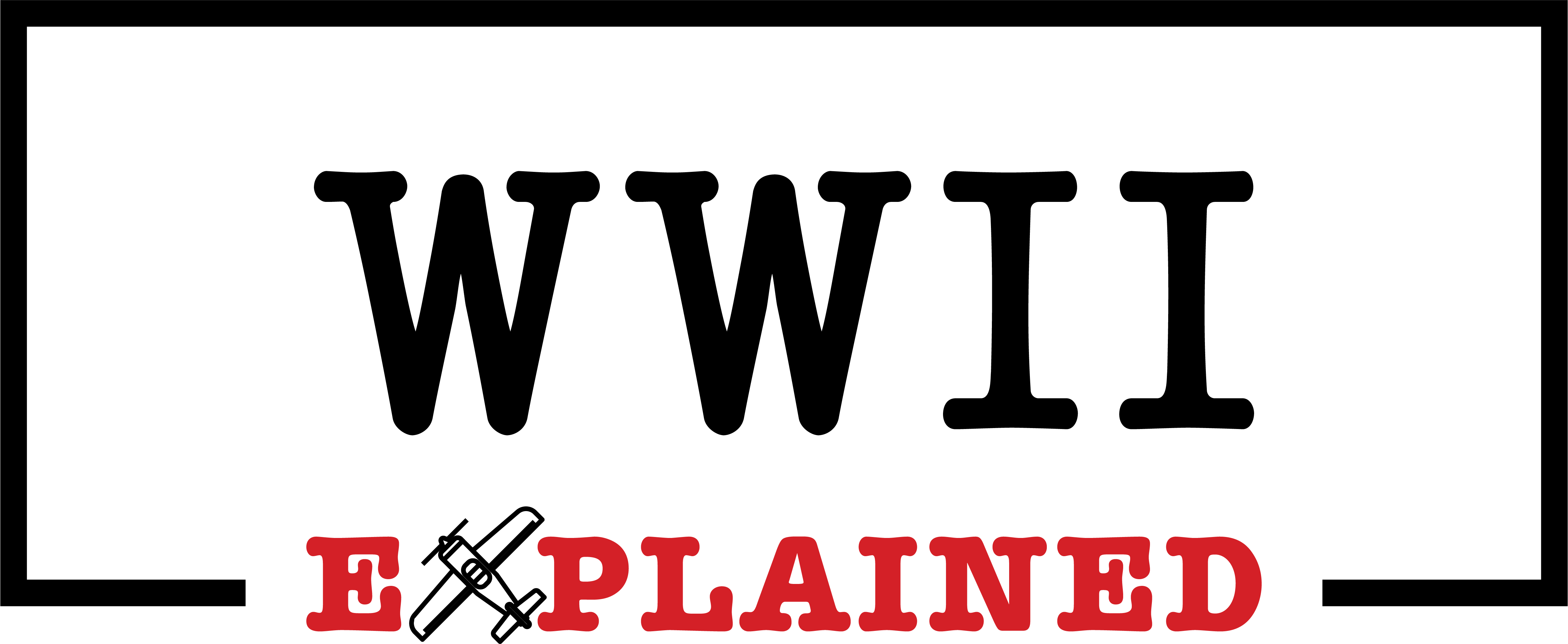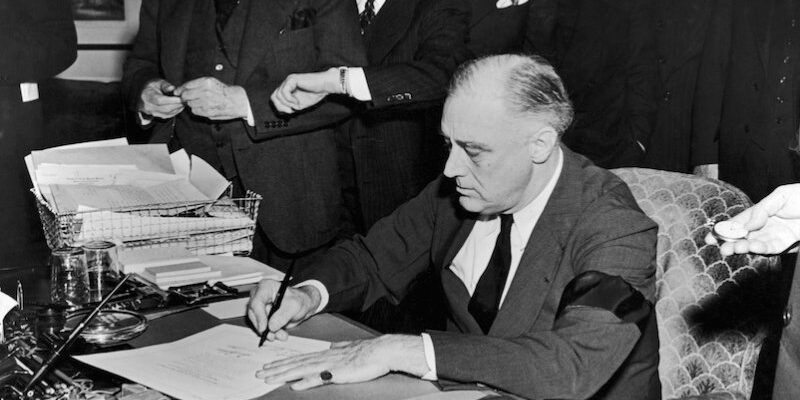The United States’ entrance into the World War II campaign is arguably one of the most significant events during this dark period of history. This entrance, however, was a point of contentious debate amongst the American people, to the extent of which it was not always a certainty that U.S. Forces would join the War. The surprise Japanese attack on Pearl Harbor in 1941 was the catalyst which led to the decision to join the allies, however before this, the United States were significantly divided in their views on what the American role should be in the war.
This indecision should be viewed in the context of World War I, in which hundreds of thousands of American troops were either wounded or killed, leading to a national trauma which fueled isolationist sentiment- a sentiment that was only supported by the fact that President Wilson’s idealistic plans for permanent peace had failed with the rise of the Nazi regime. To many Americans, this was a symbol of how little impact U.S. involvement in foreign conflict would have.
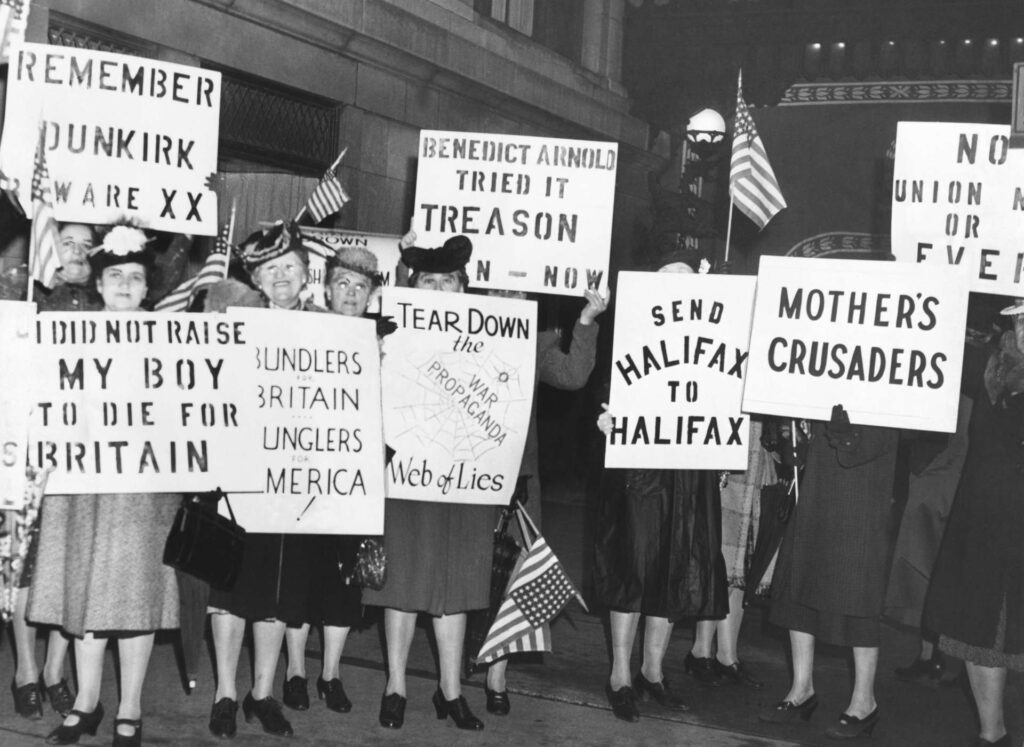
Watching from Afar
The hasty rise to power of Adolf Hitler as well as the escalating threat of Japanese expansionism had little effect in changing the isolationist views of Americans in the 1930s. Many believed that it was in the best interest of the country to avoid entering conflicts in foreign land and instead it was more important to focus on more pressing national issues such as the devastating economic and social effects of the Great Depression that had just struck. In order to try and strengthen isolationist tendencies and avoid U.S. entrance into the campaign, U.S. Congress passed the so-called Neutrality Acts throughout the 1930s, whose aim was to prevent any U.S. involvement through the banning of U.S. trade with war-torn nations, loaning of money, or travelling on foreign ships.
There came a point however in which the increasingly deteriorating situation would become impossible to ignore. Nazi expansionism was finding increasing success and by 1940, Nazi Germany had annexed Austria and Czechoslovakia, as well as accomplished the conquering of major European countries – Belgium, the Netherlands, France and Poland. By this point the only powerful European country left standing was Great Britain. These events served to fuel the debates taking place in the United States.
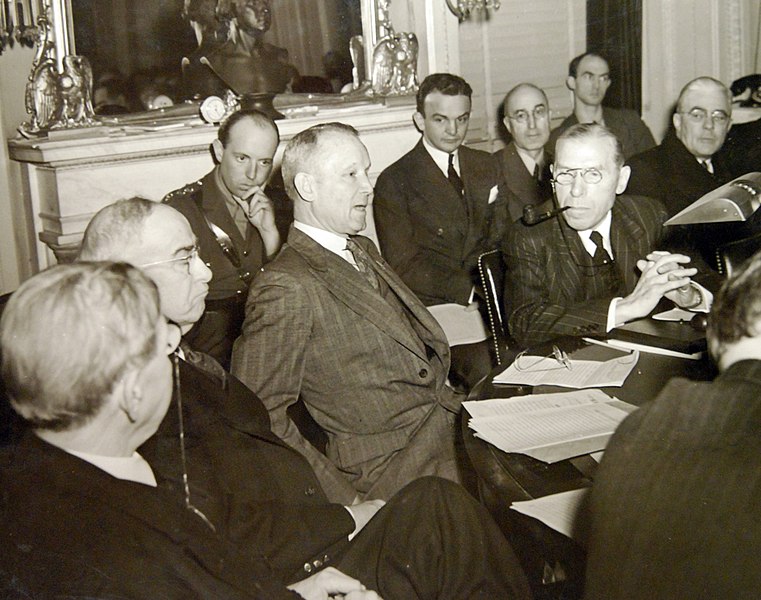
Isolation vs. Intervention
Those who wished for the United States to get involved in the WWII campaign were dubbed interventionists. Interventionists argued that European democracy was important to the global economy, particularly that of the United states and that Western European democracies played an important role as a line of defense in the face of Hitler’s rapid increase in power. They argued that if Hitler was allowed to make his way through Europe and take over entirely, this would isolate the United States and lead to a situation in which a dictator controls a substantial amount of territory and resources. While many interventionists believed that military intervention was the only way to avoid such scenarios, there were still some interventionists who believed that it would be enough to simply loosen the restrictions of the Neutrality Acts so that military aid, and weapons supplies could be shipped to Great Britain in support of their war efforts.
Isolationists on the other hand were under the impression that World War II was a conflict between foreign nations and that there was no solid reason to be involved in such a large-scale conflict. They believed that the sheer power of the U.S. military force would secure protection of the Atlantic and Pacific Oceans, keeping them safe as European powers handled their own conflicts. For this reason, it is quite clear what a stark challenge the bold ambush of Pearl Harbor, located near the Pacific Ocean, created for isolationist arguments.
The Effect of Pearl Harbor
The Japanese attack on Pearl Harbor led to one of the gravest military losses in U.S. history. During the attack, 2,403 civilians and soldiers lost their lives, approximately 1,000 were wounded, 20 U.S. ships were destroyed along with more than 300 airplane fighters. Following the attack, President Franklin D. Roosevelt addressed U.S. Congress on December 8th uttering the famous words “Yesterday, December 7, 1941—a date which will live in infamy—the United States of America was suddenly and deliberately attacked by naval and air forces of the Empire of Japan.”
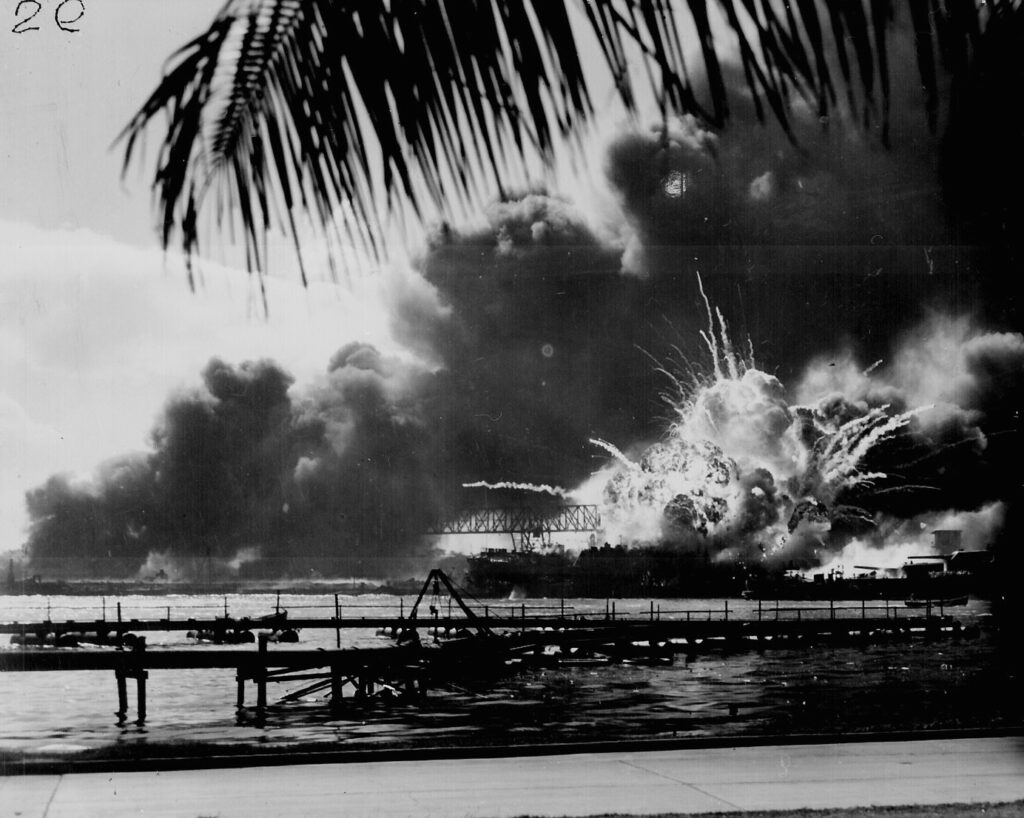
Quickly following the attack, for the first time in years of discussion between isolationist and interventionist proponents, the American people shared the common belief of the need of the U.S. to go to war. Following Roosevelt’s address on December 8th, Roosevelt’s declaration of war on Japan was met with U.S. Congress’ approval. On December 11th, 1941, Germany and Italy, allies of Japan had declared war against the United States. This was followed by a declaration of war also on Germany and Italy, meaning that more than 2 years after the commencement of World War II, the United States entered the campaign.
